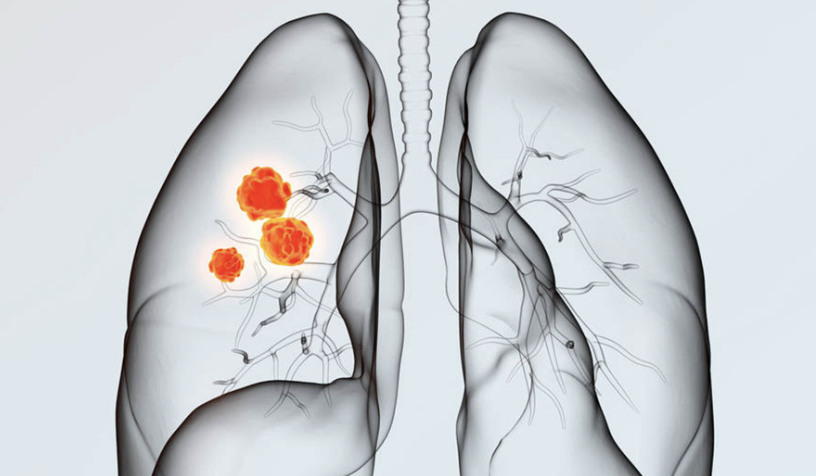Medical
Cutting-edge Medicine: Getting Immune Cells To Kill Immune Cells Can Actually Shrink Solid Tumours!
CAR-T therapy is a cellular immunotherapy treatment that has become very popular in recent years. This therapy uses genetic engineering techniques to upgrade the patient's immune T cells in vitro, before entering the body to exert a powerful anti-cancer effect. Currently, CAR-T therapy has performed very well in blood cancers such as lymphoma and leukaemia.

CAR-T therapy is a very popular form of cellular immunotherapy in recent years. This therapy uses genetic engineering techniques to upgrade the patient's immune T cells in vitro, before entering the body to exert powerful anti-cancer effects. Currently, CAR-T therapy has performed very well in blood cancers such as lymphoma and leukaemia.

However, for solid tumour types of cancer, CAR-T therapies have not been carried out as well. One important point is that many solid tumours create a "microenvironment" that is not conducive to the entry of immune cells into the tumour tissue, and in such an environment, instead of performing their anti-cancer duties, some immune cells may become a "black umbrella" that promotes tumour growth and protects the tumour from being hunted down and killed by the immune system. In such an environment, instead of performing their anti-cancer duties, certain immune cells become a "black umbrella" that promotes tumour growth and protects them from being hunted down by the immune system.
A new study shows that researchers have targeted human immune cells that have gone rogue and created CAR-T super-immune cells that target and kill the traitors, thereby improving the microenvironment of solid tumours.

This research is a novel idea, as it is neither targeting cancer cells nor transforming the patient's own immune cells to help them regain their ability to fight cancer. In this study, the goal is to directly target immune T cells with a tracker that targets the "traitors" - tumour-infiltrating macrophages (another type of immune cell in the body) - and then return to the body's army of T cell reformers to directly kill these macrophages.
The idea is to tackle the problem of immune suppression in the body at its source, by upgrading T cells so that they can become CAR-T cells that can recognise tumour-infiltrating macrophages, and when the two meet, the upgraded T cells are then activated to kill these macrophages.
In animal studies, this treatment was successful in dramatically reducing the number of tumour-infiltrating macrophages in mice with ovarian, lung and pancreatic tumours, while at the same time reducing their tumour size and prolonging their survival.
By killing layers of renegade macrophages that protect the tumour tissue, normal T cells in the mice were able to enter the tumour tissue and kill the cancer cells. This therapeutic effect, the researchers further demonstrated, was driven by the release of the cytokine infectin gamma, a molecule that regulates inflammation, from the CAR-T cells.

"Initially, our goal was merely to edit CAR-T cells so that they would kill renegade macrophages, but over the course of the study, we found that these CAR-T cells not only destroyed the renegades, but also greatly enhanced tumour immunity," said senior author Dr Brian Brwon, who is the Icahn Genomics Institute and deputy director of the Marc and Jennifer Lipschultz Institute for Precision Immunology at Mount Sinai.
This study may address another key hurdle for CAR-T cell immunotherapy's entry into solid tumours. This is because there are few specific therapeutic targets for solid tumours that are suitable for CAR-T therapy.

The researchers found that tumour-infiltrating macrophages, which suppress the body's immunity, are very similar in different types of cancer, and they are very different from macrophages in healthy tissue. This leads to promising research in cancer therapy targeting tumour-infiltrating macrophages.
-
![]()
![]() MedicalFeb 02, 2026
MedicalFeb 02, 2026New Research: Cracking The Targeted Drug Resistance Puzzle And Eliminating Cancer Cells Before They Evolve!
-
![]()
![]() MedicalFeb 01, 2026
MedicalFeb 01, 2026How should I choose the first, second and third generation test tube babies?
-
![]()
![]() MedicalJan 31, 2026
MedicalJan 31, 2026K-Drug Approved For Adjuvant Treatment Of Early-Stage Non-Small Cell Lung Cancer, Significantly Extending Cancer-Free Survival Of Patients!
-
![]()
![]() MedicalJan 30, 2026
MedicalJan 30, 2026Study Shows Drug Halves Recurrence Rate In Patients With Early-Stage EGFR-Mutated Lung Cancer!
-
![]()
![]() MedicalJan 29, 2026
MedicalJan 29, 2026New Technology Can Break The Blood-Brain Barrier To Directly Treat Brain Tumours, Is Potent And Less Toxic, And Deserves Attention!




